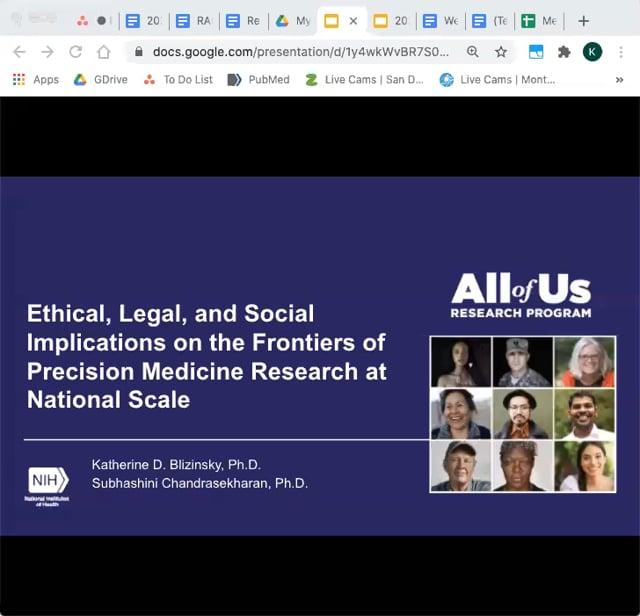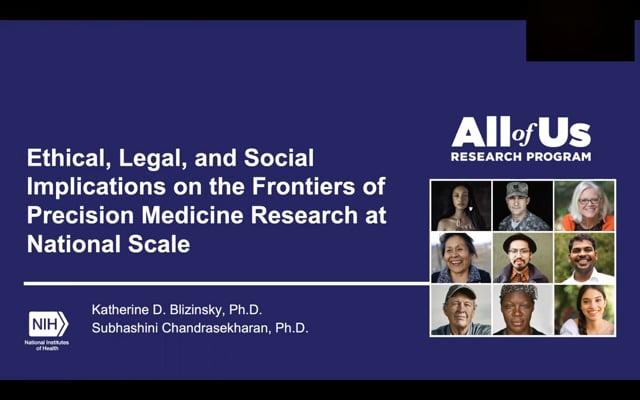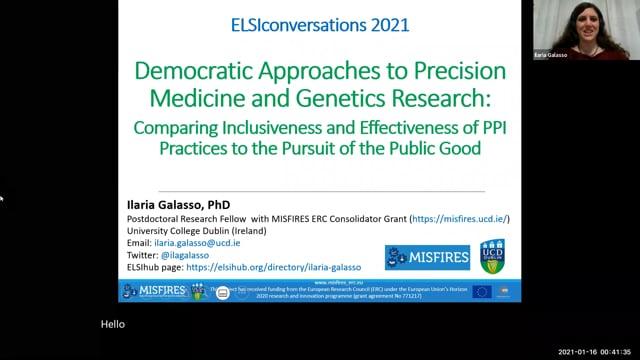Human Germline Genome Editing and the Identity Politics of Genetic Disability
Felicity Boardman, PhD - University of Warwick
ELSIconversations - April 2, 2021
The intersection of human germline genome editing with identity politics has a range of implications for the disability community. Based on in-depth interviews (n=146) and surveys (n= 1,436) with people living with a range of different genetic conditions in the UK (Cystic Fibrosis, Spinal Muscular Atrophy, Thalassaemia, Haemophilia, Fragile X Syndrome and Alström Syndrome), this presentation will explore the complex and multifaceted relationship between genetic conditions and personal identity, relating this to current debates surrounding germline genome editing. Whilst genome editing circumvents some of the key disability rights ‘expressivist’ critiques of prenatal testing and selective termination- through its preservation of the life of the would-have-been disabled person- it will nevertheless be argued that ‘expressivist’ concerns, grounded in the identity politics of disability, remain valid. Whilst technological methods of selective reproduction may evolve and shift, its underlying premise - that acceptable life is contingent on the absence of a genetic impairment- endures. Moreover, unlike equivalent methods of selective reproduction (e.g. PGD), germline genome editing has the long-term potential to remove, or at least significantly reduce, the incidence, and consequently prevalence, of genetic conditions within society. The consequences of this editing for the identities of future generations, whose genetic code may straddle the boundaries between health and illness are not yet clear. This presentation will discuss these implications of human germline editing from the perspectives of people currently living with genetic conditions, with a particular emphasis on their lived realities and experiential knowledge of genetic disability and its intersection with identity politics.
Tags
Videos in Series
-
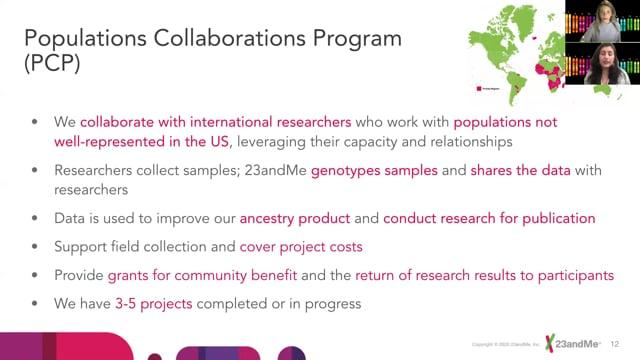
ELSIconversations 1: ELSIcon2020 - A Prospectus on Ethical Issues in the Context of Collaborations Between Academic and Non-academic Institutions on Genetics Research
-
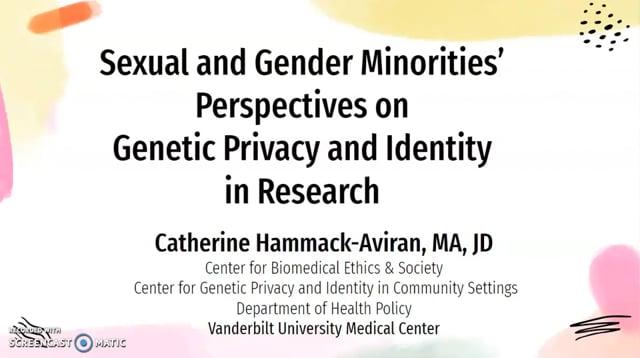
ELSIconversations 1: ELSIcon2020 - Sexual and Gender Minorities’ Perspectives on Genetic Privacy and Identity in Research
-
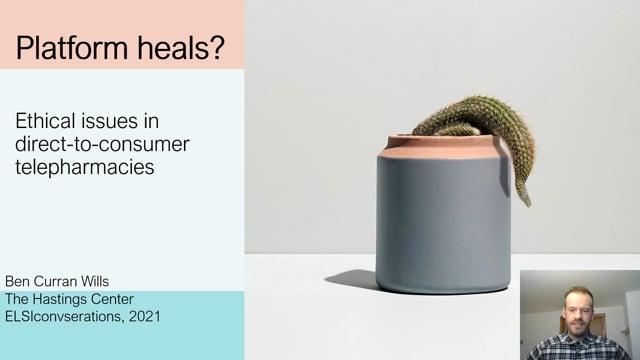
ELSIconversations 1: ELSIcon2020 - Platform Heals? Ethical Issues in Direct-to-consumer Telepharmacies
-
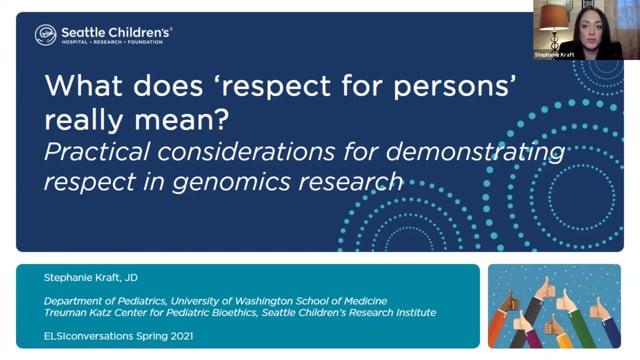
ELSIconversations 1: ELSIcon2020 - What does ‘respect for persons’ really mean? Practical considerations for demonstrating respect in genomics research
-
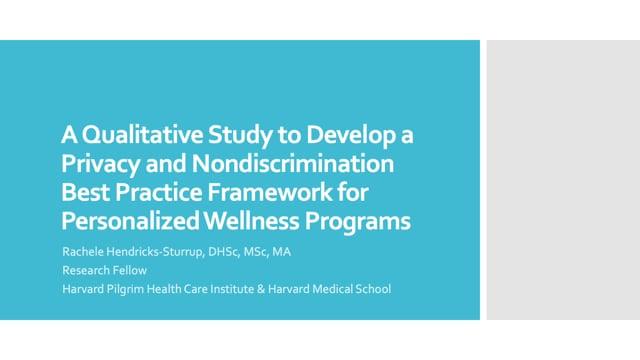
ELSIconversations 1: ELSIcon2020 - A Qualitative Study to Develop a Privacy and Nondiscrimination Best Practice Framework for Personalized Wellness Programs
-
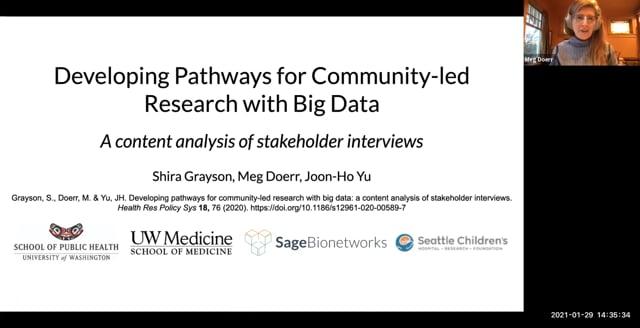
ELSIconversations 1: ELSIcon2020 - Developing Pathways for Community-led Research with Big Data: A Content Analysis of Stakeholder Interviews
-
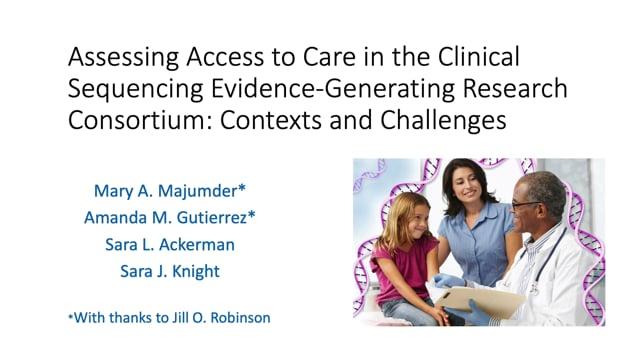
ELSIconversations 1: ELSIcon2020 - Part 1. Assessing Access to Care in the Clinical Sequencing Evidence-Generating Research Consortium: Contexts and Challenges
-
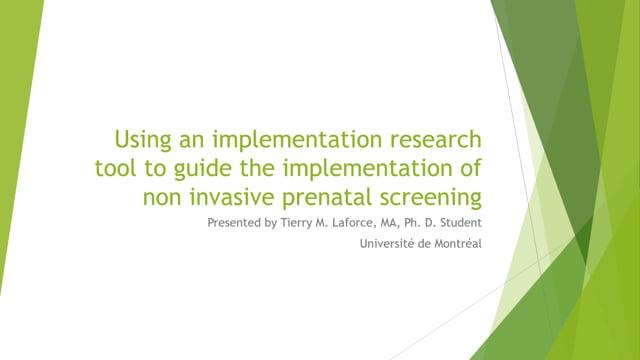
ELSIconversations 1: ELSIcon2020 - Using an implementation research tool to guide the implementation of non-invasive prenatal screening
-
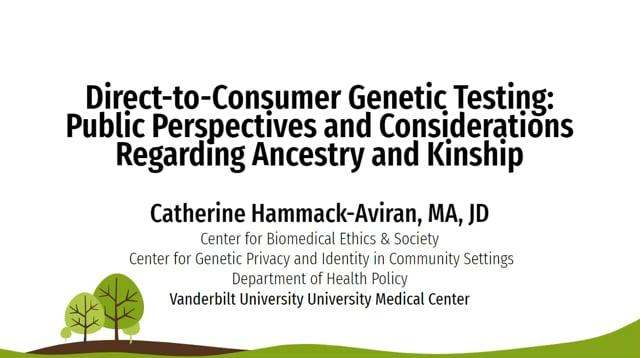
ELSIconversations 1: ELSIcon2020 - Direct-to-Consumer Genetic Testing: Public Perspectives and Considerations Regarding Ancestry and Kinship
-
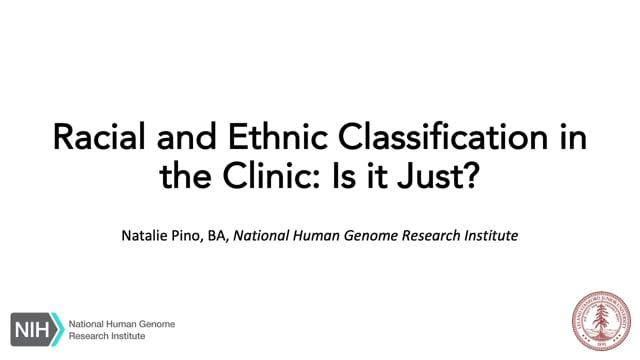
ELSIconversations 1: ELSIcon2020 - Racial and Ethnic Classification in the Clinic: Is it Just?
-
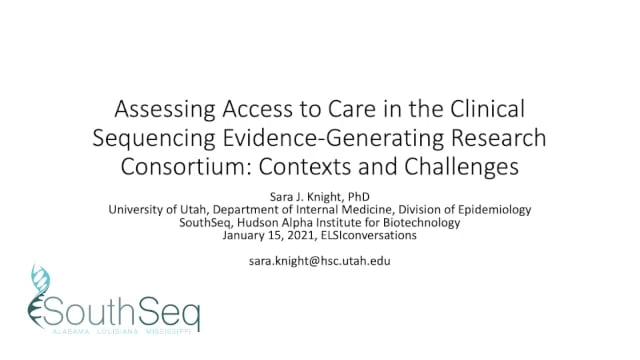
ELSIconversations 1: ELSIcon2020 - Part 4. Assessing Access to Care in the Clinical Sequencing Evidence-Generating Research Consortium: Contexts and Challenges
-
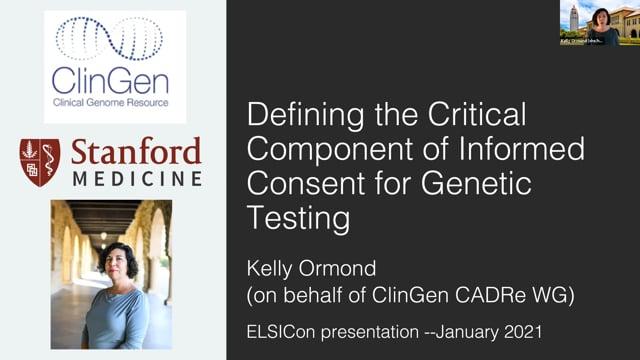
ELSIconversations 1: ELSIcon2020 - Defining the Critical Components of Informed Consent for Genetic Testing
-
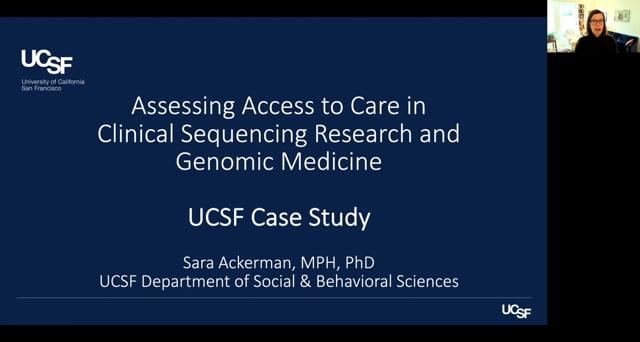
ELSIconversations 1: ELSIcon2020 - Part 3. Assessing Access to Care in the Clinical Sequencing Evidence-Generating Research Consortium: Contexts and Challenges
-
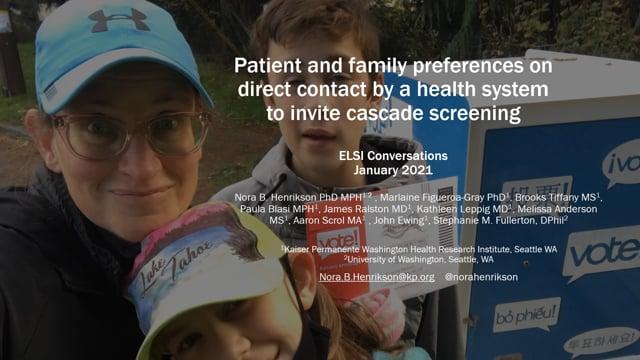
ELSIconversations 1: ELSIcon2020 - Patient and family preferences on direct contact by a health system to invite cascade screening
-
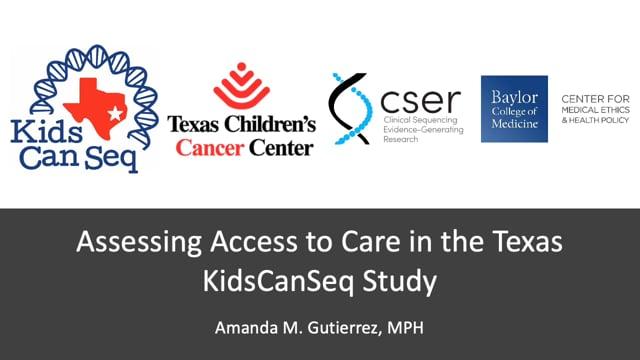
ELSIconversations 1: ELSIcon2020 - Part 2. Assessing Access to Care in the Clinical Sequencing Evidence-Generating Research Consortium: Contexts and Challenges
-
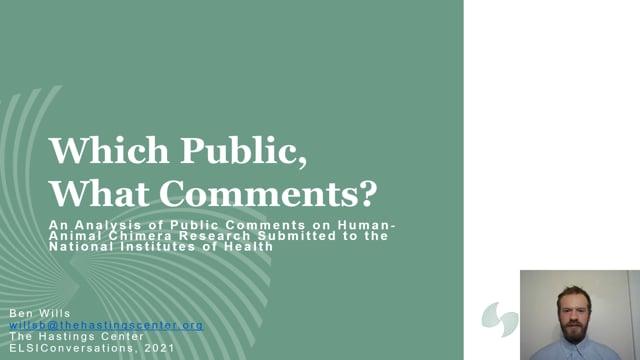
ELSIconversations 1: ELSIcon2020 - Which Public, What Comments? An Analysis of Public Comments on Human-Animal Chimera Research Submitted to the National Institutes of Health

